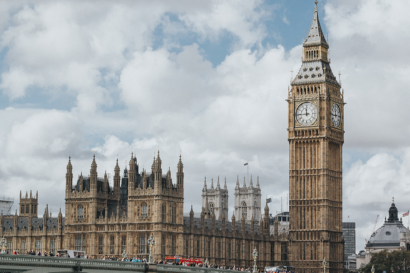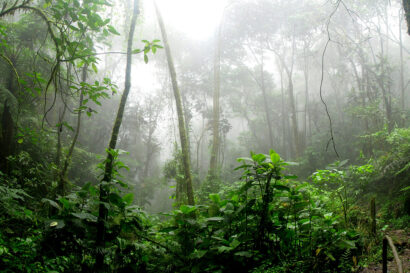AG INSIGHT | 23/10/2018
Business should think beyond being clean to being green

Bruce Howard of the UK’s Ecosystems Knowledge Network argues that there is much more to being green than avoiding harm to the environment. Being green means enhancing what the natural environment does for business and wider society. It means catalysing new investment for restoring features such as woodland and wetland based on their economic value.
During this past Green GB & NI week, calls for ‘green’ action and ‘green’ pledges were in plentiful supply. Much of this was focused on plastic pollution and greenhouse gas emissions; the current king and queen of environmental concerns.
Green logic – natural capital
While pollution-avoidance will make us cleaner, it will not make us greener. From our perspective as Ecosystems Knowledge Network, being green is about restoring the natural features that are now being branded as natural capital on the basis of the good things they do. Some of these features, such as woodland, are much loved. Others, such as soils, are unglamorous. They all matter in future prosperity, including climate resilience.
Examples of this are now in abundance. In 2011, the UK National Ecosystem Assessment calculated the storm and flood control benefits of wetlands in UK coastal areas as £1.5 billion per year. IUCN UK has demonstrated the cost-effectiveness and of restoring peatland as a way of sequestering carbon (and avoiding emissions through further degradation). Similarly, we are increasingly aware of the value of urban greenspace to the health of our workplaces and the cohesion of local communities. A 2017 report by Vivid Economics put the value of the services provided by London’s public green space at £5 billion a year. Health benefits were top of the list in this.
Monetary values don’t replace other ways of expressing value. Rather, they complement them. They put us in the mind set of growing our assets because of the good they do. This is green logic.
A new avenue for Clean Growth
In our dash to be so-called green, we should not get caught up in a whirlwind of negative thinking about how we harm the environment or how it might harm us. Even if plastic packaging had never been invented and human-induced climate change were not a reality, the environment would matter just as much for everyone’s wellbeing and prosperity.
It is one thing to merely view the environment through an economic and moral lens. Doing something about this is the real challenge, and I’d contend this should be the focus for the UK’s Clean Growth Strategy going forward.
A re-think of how and why we finance the environment should lie at the heart of next year’s Green GB and NI. Green finance should look beyond finance for engineered technologies that reduce greenhouse gas emissions. Our natural environment provides a unique mix of public and private benefits that cannot be assured. Protecting and growing them requires a new innovative mix of finance involving government and the private sector. It is not simply about reshaping agri-environment payments or pooling of compensation funds for build development. It is about ensuring those who benefit from the environment pay those with the capacity restore it.
Revenue and investment
The Aldersgate Group paper on increasing investment in natural capital identified that one of the greatest barriers to private investment in environment is the lack of reliable revenue stream. This is not insurmountable. The Business in the Community scheme to install green infrastructure in schools in Greater Manchester to reduce surface runoff is one example. The Landscape Enterprise Scheme being advanced by 3 Keel, Nestlé and others is another. The National Trust and Green Alliance are working to implement Natural Infrastructure Schemes; markets in avoided costs for slow, clean water.
The Natural Capital Investment Conference, taking place in London on 28th February 2019, is our contribution to building a genuinely Green GB & NI. We are bringing environmental professionals – many of whom are land owning – with experts in green finance and impact investment. We are pleased that Aldersgate Group Executive Director Nick Molho will be taking part.
Being green is so much more than being clean. Conversations such as those last week at Green GB & NI week need to recognise this. If they don’t, the UK simply won’t be the green leader it aspires too. The natural capital assets upon which business and wider society depend will diminish, even if our greenhouse gas emissions decline.
We look forward to seeing Aldersgate Group members lead the way on this in the 2019 Year of Green Action.
Bruce Howard is Director of the Ecosystems Knowledge Network, a UK-wide forum to help people deliver wellbeing and prosperity through a healthy natural environment. Ecosystems Knowledge Network organises the Natural Capital Investment Conference. @EcosystemsNet @NatInvest


